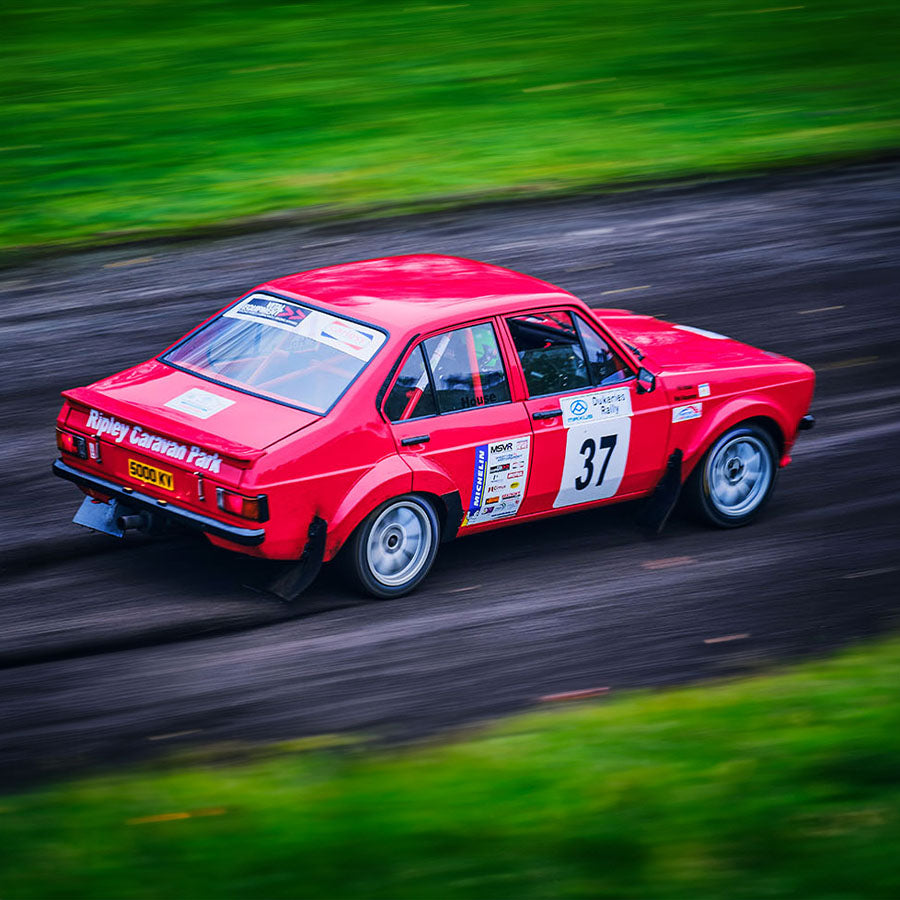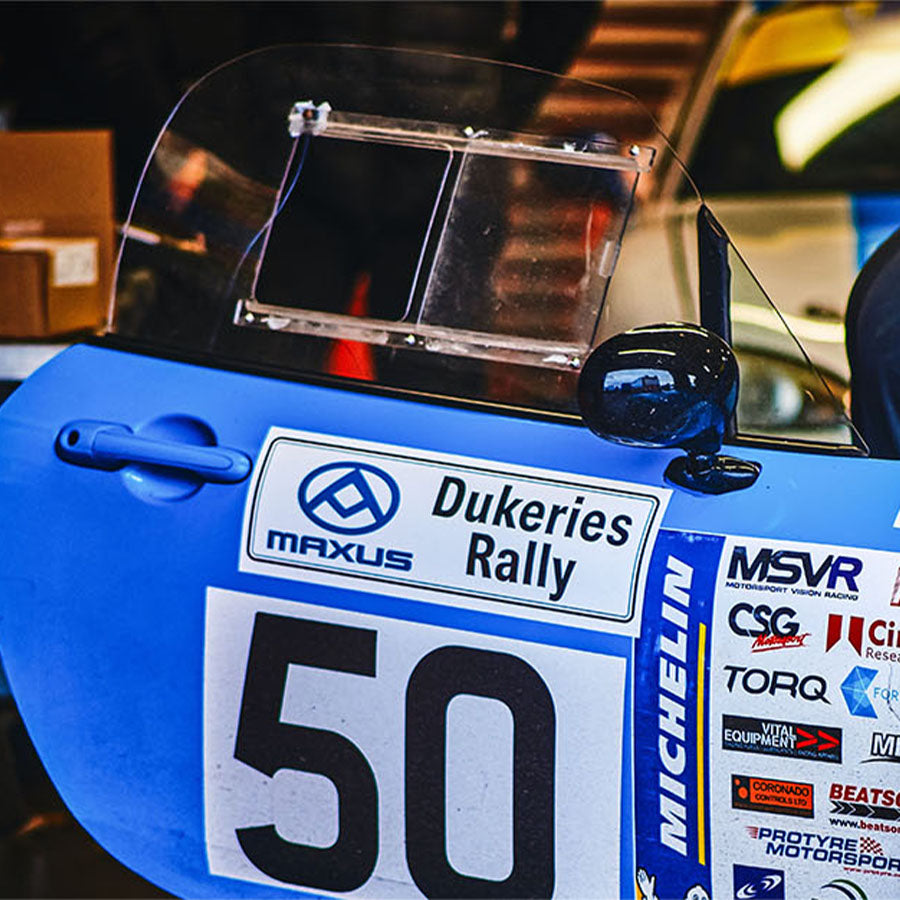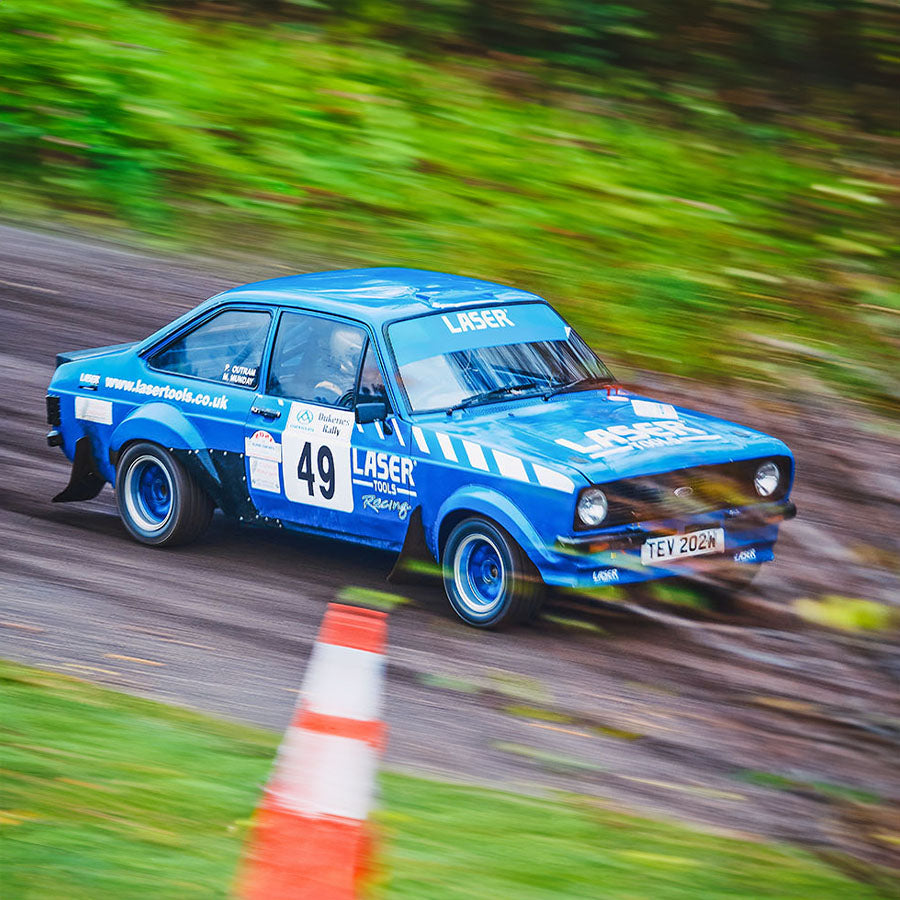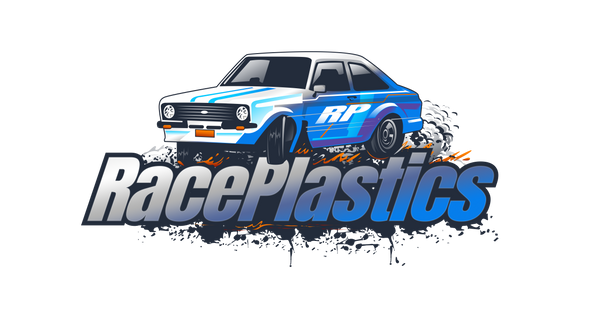
Perspex vs Polycarbonate
Find out why Polycarbonate is the clear winner
Polycarbonate is a popular material used in race car windows due to its unique combination of properties that make it well-suited for the demanding conditions of motorsports.
Here we take a look at why polycarbonate is used for race care windows rather than perspex.
Why Polycarbonate?
Here’s why polycarbonate is chosen for race car windows:
-
Lightweight:
Polycarbonate is significantly lighter than glass, which helps reduce the overall weight of the race car. A lighter car can accelerate faster, handle better, and achieve higher speeds, all of which are crucial in racing.
-
Impact Resistance:
In the high-speed, high-risk environment of racing, debris, gravel, and even other cars’ debris can hit the windows at high velocities. Polycarbonate’s ability to withstand impact minimizes the risk of shattering and helps protect the driver from flying debris or collisions.
-
Flexibility:
Polycarbonate has a degree of flexibility that glass lacks. This property enables it to absorb and distribute the force of impacts, reducing the likelihood of shattering. This is particularly important in motorsports, where crashes and collisions are not uncommon.
-
Transparency and Clarity:
High-quality polycarbonate can be manufactured with excellent optical clarity and transparency, ensuring that drivers have clear visibility on the track. This is crucial for maintaining situational awareness and making split-second decisions at high speeds.
-
Moldability:
Polycarbonate can be easily molded into complex shapes and curves, which is important for fitting windows to the contours of race car bodies. This flexibility in design helps improve aerodynamics and overall vehicle performance.
-
UV Resistance:
Polycarbonate can be formulated with UV-resistant coatings or additives, protecting the material from yellowing, hazing, or other forms of degradation when exposed to sunlight over extended periods. This is essential for maintaining optimal visibility during races.
-
Thermal Resistance:
Polycarbonate has good thermal stability and can withstand a range of temperatures without warping or deforming. Race cars can experience extreme temperature variations due to track conditions, engine heat, and weather changes, making thermal stability important for maintaining the integrity of the windows.
-
Easy Replacement:
In the event that a polycarbonate window gets scratched or damaged, it can often be replaced more easily than traditional glass. This is beneficial for race teams that need to make quick repairs and get the car back on the track as soon as possible.
-
Customisation:
Polycarbonate can be tinted, coated, or treated to meet specific requirements. Race cars often have unique design elements, and using polycarbonate windows allows for greater customization while still maintaining safety and performance.
Polycarbonate is an ideal material for race car windows due to its lightweight, impact resistance, flexibility, transparency, moldability, UV resistance, thermal stability, and ease of replacement. These properties collectively contribute to enhanced driver safety, improved vehicle performance, and a better racing experience overall.
Why you shouldn't use perspex?
Using acrylic for race car windows can present several dangers and drawbacks compared to using polycarbonate. Here are the dangers of using acrylic for race car windows summarised in bullet points:
-
Reduced Impact Resistance:
Acrylic is less impact-resistant than polycarbonate, increasing the risk of shattering and causing injury to drivers upon impact.
-
Limited Forming Options:
Acrylic’s molding capabilities are more limited compared to polycarbonate, making it less adaptable to the complex shapes and contours of race car bodies.
-
Heavier Weight:
Acrylic is generally heavier than polycarbonate, negatively affecting the race car’s overall performance by reducing acceleration, handling, and speed.
-
Limited Flexibility:
Acrylic’s rigidity makes it less able to absorb and distribute impact forces, potentially leading to more severe damage to the window and the race car’s structure.
-
Higher Wear & Tear:
Acrylic’s lower durability compared to polycarbonate may result in more frequent replacements, increasing maintenance costs and downtime for race cars.
-
Inferior Optical Clarity:
While acrylic can offer good clarity, it may not match the optical quality of polycarbonate, affecting driver visibility and decision-making during races.
-
Lower Temperature Resistance:
Acrylic may warp, deform, or become brittle under extreme temperature variations, compromising the integrity of the window and impairing driver visibility.
-
Higher Likelihood of Shattering:
Acrylic is more prone to cracking and breaking under high-speed impacts or collisions, creating dangerous shards that can pose a risk to drivers and spectators.
-
Risk of Inconsistent Performance:
Acrylic’s properties might vary depending on the manufacturer or formulation, leading to potential inconsistencies in impact resistance and overall performance.
In summary, using acrylic for race car windows could compromise driver safety, vehicle performance, and overall racing experience due to its reduced impact resistance, higher likelihood of shattering, limited flexibility, heavier weight, lower temperature resistance, increased wear and tear, inferior optical clarity, restricted forming options, and the potential for inconsistent performance.
Browse our product ranges:
-

Looking for windows?
View windowsLightweight impact resistant polycarbonate racing windows for all major vehicle brands and models, available in full kits or individually.
-

Need a slider kit?
View kitsOur easy retro fit window slider kits are the essential addition to your racing windows with standard and advanced kits available.
-

Replacing mud flaps?
View mud flapsBrowse our range of mud flaps available in a range of of colours to find the right under belly protection for your rally car's look.
Can we help?
We love helping our customers find what they need - we are dedicated to making sure you enjoy your passion to the max.



